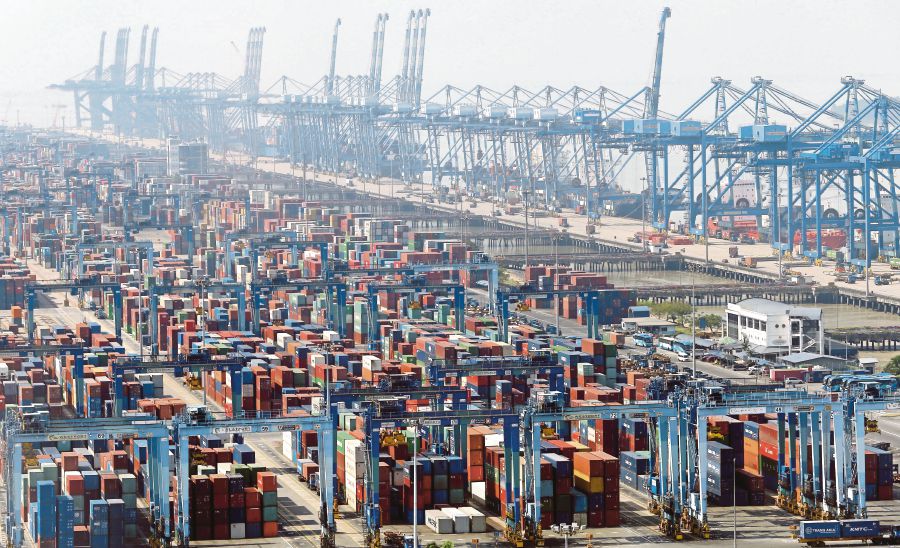THE International Monetary Fund’s latest World Economic Outlook Update (July) sees the global pickup continuing for the rest of the year and next year. Mind you, at 3.5 and 3.6 per cent for this year and next, the numbers are not hugely bouncy.
These days, however, just to see the sun peek through the clouds is cause for happiness. Since the 2008 global financial crisis, the IMF has had few opportunities to not be tentative, so this set of numbers is welcomed.
For this year, the IMF sees that better growth prospects will be contributed roughly equally by advanced and emerging and developing economies. Next year, however, the latter will take over as global drivers.
Notably, the Fund leans towards pessimism with respect to the United States and the United Kingdom, while marking up the prospects for Europe, especially eastern states.
In Asia, the Fund is not fired up about China’s growth prospects given efforts to curb credit growth and manage financial risks. In its book, India will be the star performer.
For Malaysia, the good news of this year has been translated into a sizeable rebound in electrical and electronic exports, petroleum products and primary commodities.
Shipments of electrical and electronics in May were up by more than 30 per cent, and companies involved have given business conditions a double thumbs-up.
This sector is not as large as it once was, but what remains is resilient business-wise. Petroleum and palm oil products have also recovered strongly from 2016.
Since 2012, external demand worldwide has been depressed largely due to low domestic economic activity and foreign investment.
This has led to a pervasive sense of export pessimism and economic policymakers have been talking a whole lot more about what happens inside their borders than outside them. Consumption and infrastructure spending are two commonly touted items.
Trade has been taken for granted, its importance minimised and, worryingly, some countries have — and are — taking steps to raise trade barriers rather than dismantle them. Trade has also been politicised to a huge extent.
In its update, the Fund admits that the dark clouds have not blown away.
“While risks around the global growth forecast appear broadly balanced in the near term”, it says, “they remain skewed to the downside over the medium-term”.
This is its way of saying that while some bright spots may be emerging, they are iffy as the environment is still fragile.
What exactly are the risks that it speaks about? The financial risks are, by now, relatively well known. The IMF still see the possibility of overreaction to faster-than-normal US interest rate normalisation.
The US has raised its federal funds rate now four times, each by small increments and without too much disruption. Indeed, equity prices are still scaling the ceiling while bond yields remain on the floor.
The main risk detected, however, is US fiscal policy, in short whether its budget will provide as big a stimulant as originally expected. Brexit negotiations also make the UK vulnerable.
As an international organisation, the IMF has had to write its reports carefully so as not to antagonise member governments.
While unstated, when it refers to the rolling back of financial regulation, policy uncertainties, inward looking policies, geopolitical tensions, weak governance and corruption, it is clear which countries are involved.
What implications then does the update hold for Malaysian policymakers?
The first is to take nothing for granted. Despite above five per cent economic growth rates, fragile economic conditions remain and policy shocks are possible. These can derail growth prospects in a blink of an eye.
Second, more than ever, every ringgit must count. The temptation of populist policies is always present and never more so than in a year of major decision. Public sector deficits and debt must be checked.
Third, and possibly most importantly, anti-globalisation tendencies should be warded off. Yes, globalisation has its curses along with blessings. But, the former can be mitigated by sound policymaking.
Fourth and finally, weak governance and corruption can never be treated as business-as-usual. State institutions must work with checks and balances and without wholesale discretion of a few.
This article first appeared in The New Straits Times on 1 August 2017.





